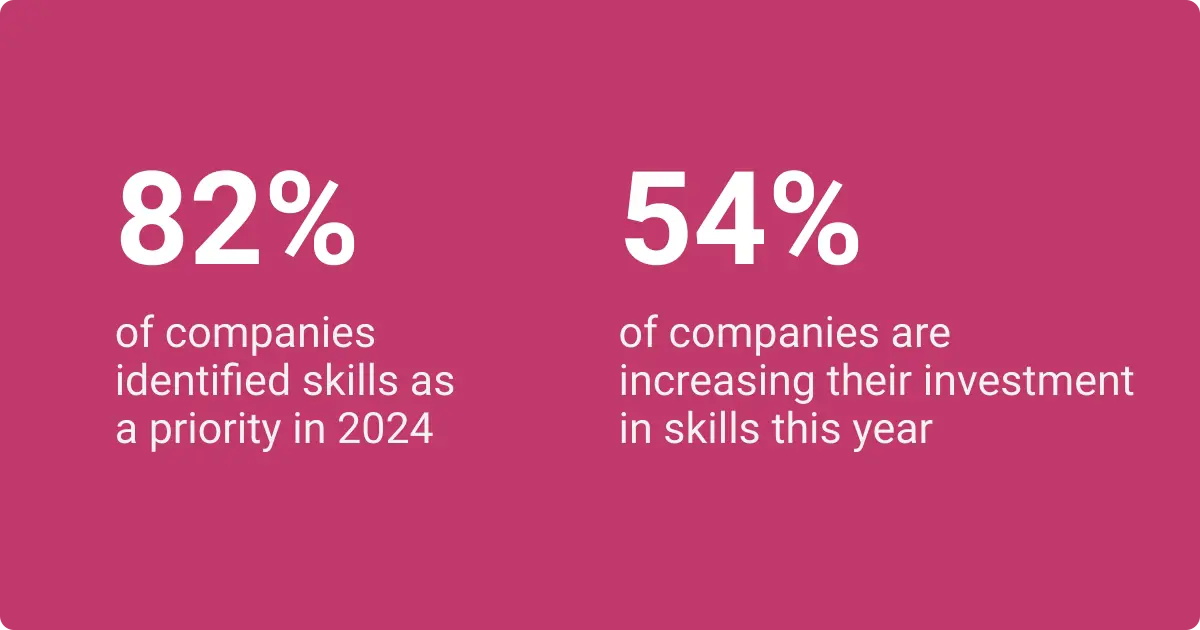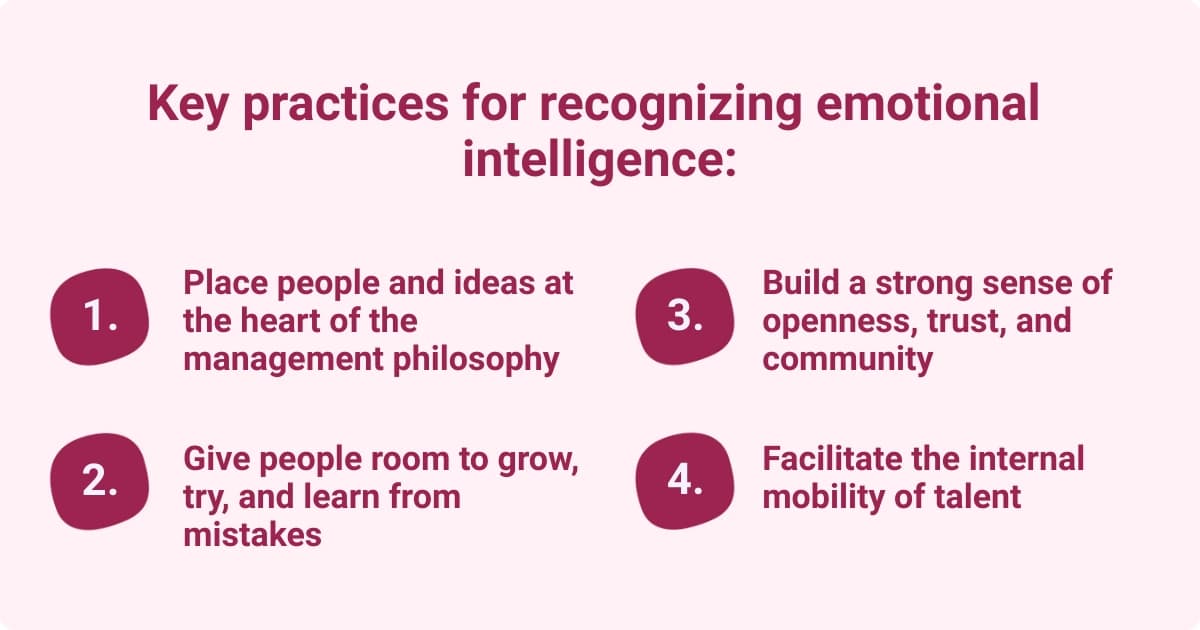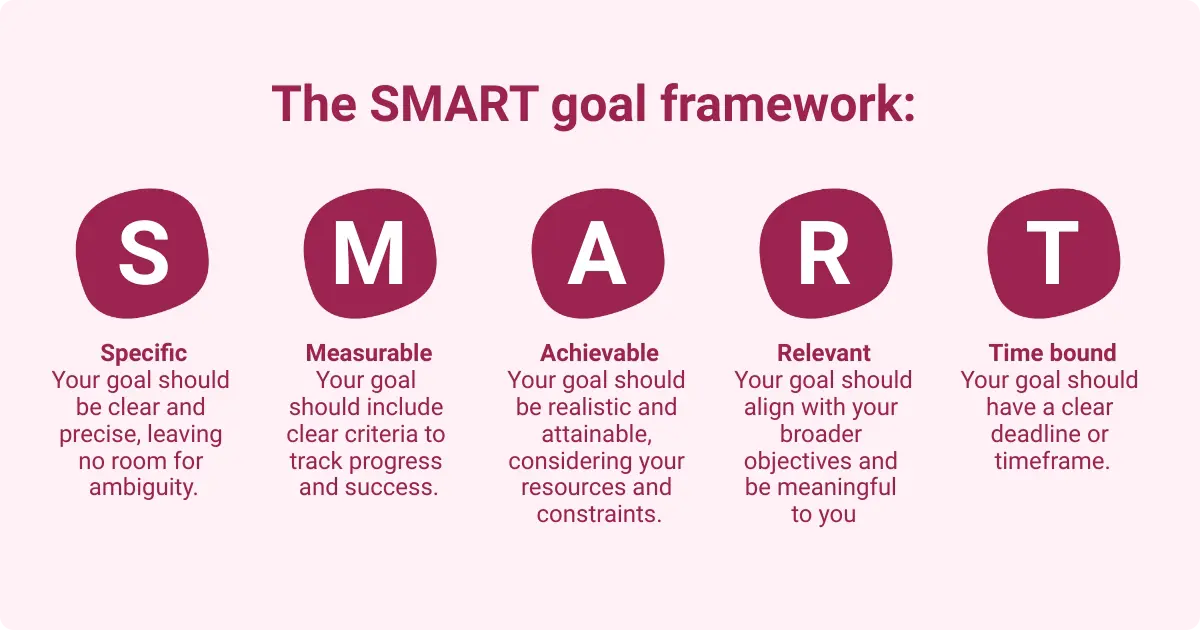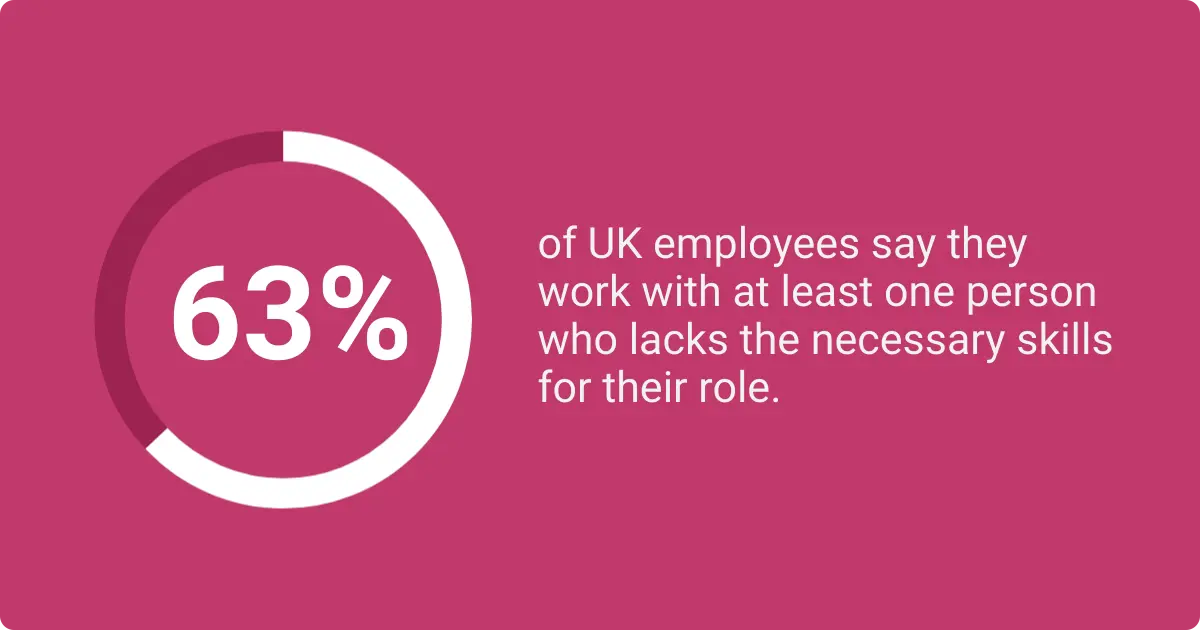Key Job Skills in 2026: Types, Examples, and How to Develop Them
Table of contents
As many as 82% of companies identify skills as a priority, with 54% planning to increase their investment in workforce development. With artificial intelligence and other sophisticated technologies set to alter many jobs, organizations are prioritizing job skills that solve long-term problems and adapt to new challenges.

But what exactly are job skills, and why do they matter so much in today’s workforce? Job skills refer to the abilities and expertise that enable you to perform specific tasks effectively. In a competitive job market, skills are often the most critical factor in employers’ hiring decisions and a key determinant of success in any role.
The right combination of hard and soft skills can impress your employer and increase your chances of employment or promotion. Hard skills enable you to carry out specialized tasks and build deep knowledge in your field.
In contrast, soft skills allow you to navigate workplace relationships so you can work well with others and adapt to changing situations. Broadly, job skills fall into three categories: technical, soft, and transferable.
Key types of job skills you need to know
According to McKinsey Insights' 'Five Fifty: The Skillful CorporationOpens in a new tab,' eighty-seven percent of companies acknowledge having a skills gap. To assess your strengths and align your professional development with today’s job market demands, it's important to understand the main categories of job skills.
Technical (hard) skills
Technical or hard skills are competencies you need to perform job-specific tasks. You develop them through formal education or hands-on experience. Hard skills are essential for doing your job well and are usually the primary consideration for roles that require specialized knowledge.
Here are the technical skills often required for different professions.
| Profession | Common hard skills required in the job market |
| Software development | Coding (Python, Java, C++), database management, version control, API integration |
| Nursing | Medical charting, patient care, administering medication, operating medical equipment, and inserting IVs |
| Data analyst | Data visualization, statistical analysis, SQL, Excel, and data cleaning |
| Truck driver | Commercial vehicle driving, route planning, GPS navigation, cargo loading/offloading, and compliance with safety regulations |
| Accountant | Financial reporting, tax preparation, auditing, compliance, bookkeeping |
| Graphic designer | Adobe Creative Suite, typography, branding, layout design, UX/UI principles |
Hard skills show employers that you possess the technical expertise to perform the job effectively. They are often measured through tests and certifications.
Soft skills
Soft skills are personal and interpersonal abilities that help you work effectively with others and adapt to various situations. Unlike hard skills, they are harder to measure but are essential for success in almost every field. In fact, while 98% of companies struggle to find talent, 89% say they avoid hiring job seekers who lack soft skills:
- Sixty percent avoid hiring job seekers who lack real-world experience
- Fifty-seven percent pass on candidates fail due to the lack of a global mindset
- Fifty-five percent reject workers who don’t know how to work well on a team
- Fifty percent skip applicants who lack proper business etiquette
While there are several soft skills you can develop, employers overwhelmingly expect new hires to bring common soft skills for career success:
| Soft skill | The percentage of employers who value it | Why it matters |
| Communication | 98% | Enables clear expression and simplifies collaboration |
| Curiosity and adaptability | 93% | Helps you learn quickly and adjust to changing circumstances |
| Collaboration | 92% | Enables teamwork and helps achieve shared goals |
| Creativity | 90% | Encourages innovative thinking and fresh problem-solving approaches |
| Critical thinking | 87% | Improves analysis and sound judgment |
Soft skills influence how well you work with others and navigate workplace challenges.
Transferable skills
Transferable skills are versatile abilities you can apply across different industries and roles. These skills remain relevant even when you switch careers. You develop them through work experience, volunteer work, education, hobbies, or even everyday life. Here are some common examples:
- Problem-solving
- Leadership
- Critical thinking
- Organization
- Empathy
What are the top skills employers want in candidates?
Most HR leaders say they struggle to find the skills they are seeking. To set yourself apart, develop key, in-demand skills that companies need.
Problem-solving
Problem-solving is the top skill employers are seeking in new hires, with 88.3% of organizations looking for individuals who can handle complex problems head-on. As opposed to only fixing what’s broken, a good problem solver anticipates issues before they escalate and chooses the most effective path forward.
Employers value problem solvers who approach issues with a creative mindset, helping the company reduce downtime and improve processes, even in the face of setbacks.
Teamwork & collaboration
Seventy percent of employees believe they are part of a dysfunctional team, with 86% seeing a lack of collaboration or ineffective communication as the cause of workplace failure.
So, many employers value teamwork skills and people who can work effectively with others, as it allows their companies to combine individual strengths to achieve the greater organizational goal.
More importantly, a more cohesive team creates a positive work environment that helps the project move forward efficiently. In fact, organizations that support teamwork are five times more likely to be high performing.
Time management
Time management is the ability to plan and prioritize tasks so work is completed efficiently and deadlines are met without unnecessary stress. Companies value strong time management because it keeps projects on track and prevents costly delays. When an employee can allocate their time effectively, they reduce the last-minute rushes to improve the quality of their work.
Leadership skills
Leadership skills allow you to guide and inspire others toward achieving shared goals. Strong leaders create clear goals and expectations, then motivate their teams to perform at their best.
That's why 70% of HR professionals say it’s important or very important for candidates pursuing managerial roles to possess a broad set of leadership skills that align with evolving business needs. With the right leadership, a company can drive team performance and guide projects to successful outcomes.
Adaptability & flexibility
Many organizations are prioritizing adaptable talent. Instead of focusing solely on job seekers with specific technical skills, employers now seek candidates who are quick to learn and able to switch roles as needed. Organizations are acknowledging that while technical abilities are valuable, the ability to embrace new technologies and stay productive despite shifting business conditions is critical in creating a resilient workforce.
Emotional intelligence (EQ)
Emotional intelligence is the ability to understand and manage your emotions while also empathizing with and effectively responding to the emotions of others. It plays a role in how you relate to people at work and how you handle workplace stress.
An article titled "What Is Emotional Intelligence? Here’s Why It Matters at WorkOpens in a new tab" by the Yale School of Management reveals that employers now view emotional intelligence as equally, if not more, important than hard skills. They seek candidates who show self-awareness and strong interpersonal abilities.
These skills strengthen workplace relationships and defuse conflicts, contributing to a healthier work environment. Common activities for emotional intelligence you can practice include:
- Empathy
- Self-reflection
- Giving and receiving feedback
- Stress management
- Gratitude

Communication skills
Communication skills involve clearly expressing your ideas and listening with intention. They also include the ability to adjust your message depending on with whom you’re speaking. Ninety-eight percent of employers require strong communication skills in new hires, and 92% say collaboration is vital for team success.
Organizations emphasize communication skills because they help maintain clarity and prevent misunderstanding. Good communication also simplifies collaboration across projects and departments.
Critical thinking skills
Critical thinking is among the most sought-after core skills, with 70% of employers considering it essential. It’s the ability to analyze information objectively and make reasoned judgments. Organizations value critical thinking as it enables employees to make better decisions and find creative solutions to problems.
Through thoughtful insights, critical thinkers can help the organization make continuous improvements to systems and workflows.
Decision-making
Decision-making skills enable you to assess situations and weigh options before choosing the most effective course of action. Today, they involve the use of data to validate decisions before committing to them. Organizations value well-developed decision-making skills as they enable teams to stay focused and avoid unnecessary risks.
How to showcase your job skills on your resume
After work experience, job skills are the most important section on a resume. In fact, 41% of recruiters look for skills on a resume first.
You might think the skills section of your resume is easy — just list a few of them and you're good to go. But how you showcase your job skills on your resume can make or break your ability to impress recruiters and secure a position.
Highlighting job skills on your resume
Scan the job description to identify the necessary skills for the role. Create a skills section near the top of the page so the hiring manager can quickly review your skills. It’s best practice to list six to eight key skills. Categorize them into hard and soft skills.
Then sort each section by relevance to the role. Provide specific skill descriptions. For instance, “Written and verbal communication” sounds better than just “Communication.”
Tailoring job skills for different roles
The key to capturing recruiters’ attention is highlighting only relevant skills. If you’re applying for a backend developer role, you can leave out the customer service skills you gained from your previous job. Job ads usually list a set of requirements, which you can use to determine what skills and experiences to include.
Showcasing accomplishments through skills
Listing your job skills alone won’t give you a competitive edge. After all, every candidate can do it. To make an impression right away with your most important skills, showcase how you’ve used them to achieve results instead of just listing them. Your resume’s skill section can be like this:
- Cross-functional team leadership: Led a 15-person team across the sales and support departments at a high-volume call center.
- Executive-level presentation skills: Delivered performance update to C-suite, securing a 10% budget increase for the department.
- High-stakes customer conflict resolution: Handled priority escalations, leading to a 12-point NPS improvement in six months.
- International team management: Oversaw a distributed customer service team of 25+ across North America and Europe.
What skills are required in different industries?
Different industries demand different strengths. Creating a personal skills map can help you identify the specific skills that matter most in your target field. Here are some key job skills valued across major industries:
Key skills for succeeding in tech roles
Whether you’re a seasoned tech professional or a novice, the right mix of key hard and soft skills will create opportunities for growth in tech:
| Hard Skills | Soft Skills |
| Programming (Python, JavaScript, Java, C++) | Adaptability and learning agility |
| Cybersecurity and data privacy | Continuous learning and curiosity |
| Cloud computing (AWS, Azure, GCP) | Problem-solving and critical thinking |
| Data analysis and big data tools | Communication and collaboration |
| Networking and infrastructure | Creative thinking and innovation |
| AI/ML fundamentals | Time management |
| Project management (Agile, Scrum) | Emotional intelligence and teamwork |
Essential skills for thriving in a healthcare career
Healthcare professionals need a well-balanced blend of technical knowledge and interpersonal skills to provide quality care and navigate high-pressure environments. While the exact skills vary by role, here’s a quick overview of key skills the profession draws on to deliver exceptional patient care:
| Hard Skills | Soft Skills |
| Medical terminology and procedures | Empathy and compassion |
| Patient assessment and diagnosis | Emotional resilience |
| Electronic health records | Communication with patients/families |
| Medication administration | Teamwork and collaboration |
| Infection control and hygiene practices | Stress management |
| Basic life support and first aid | Attention to detail |
| Clinical decision making | Adaptability and fast-paced settings |
Top skills for excelling in sales and marketing
Sales and marketing roles demand a strategic blend of digital tools and persuasive, customer-centric communication. Here are some top skills you need to master to succeed in this field:
| Hard Skills | Soft Skills |
| Customer relationship management (CRM) tools | Persuasion and negotiation |
| Digital marketing (SEO, PPC, email, social) | Adaptability to market trends |
| Sales funnel management | Emotional intelligence |
| Data analysis and campaign metrics | Creative thinking |
| Content creation and copywriting | Communication and storytelling |
| Lead generation and prospecting techniques | Relationship building |
| Marketing automation tools | Time management and organization |
Skills needed for success in customer service
Whether you’re at the front desk or managing operations behind the scenes, the right customer service skills will help you address customer needs and foster a positive experience.
| Hard Skills | Soft Skills |
| Customer support software | Verbal and written communication |
| Data entry and documentation | Patience and empathy |
| Ticketing system and CRM tools | Conflict resolution |
| Order processing and billing systems | Active listening |
| Office administration tools | Time management and organization |
| Scheduling and calendar management | Problem-solving under pressure |
| Reporting and performance tracking | Teamwork and interpersonal skills |
How can you build and improve your skills?
Upskilling and reskilling are essential to stay relevant and competitive as industries evolve and job requirements shift. In fact, according to The Future of Jobs Report 2023Opens in a new tab by the World Economic Forum, 81% of businesses consider learning and training a crucial element of their workforce strategy to achieve their business goals. But how do you build and improve the right skills?
Set clear and actionable goals
Define your SMART goals (specific, measurable, achievable, relevant, time-bound) to keep you focused and track progress.

Instead of setting vague goals like “Get better at data analysis,” which are hard to measure and easier to abandon, be specific. Go for a measurable goal like “Complete a beginner-level Excel analytics course within four weeks.” When you follow the SMART framework, you give yourself structure and trackable progress.
Continuous learning
Skills fade fast in today’s job market, especially in highly volatile industries like tech. Continuous learning is a long-term strategy to keep you sharp and adaptable. Yet, people forget 40% of what they learn in the first 20 minutes after training and lose 77% within the first day.
Whether you’re taking an online course or attending workshops, learning should be cyclical:
- Set goals
- Apply what you learn
- Seek feedback
- Share your knowledge with others
Gain hands-on experience
Sixty-three percent of employees say they work with at least one person who lacks the necessary skills for their jobs. The gap between theory and practice necessitates real-world experience.

Internships, volunteering, freelancing, and part-time roles can help you apply skills in real-world settings.
Seek feedback and mentorship
Feedback and mentorship from peers and industry experts can help you identify and address gaps in your skill set to improve performance in your role. Your organization can take advantage of tools like Workhuman’s Social Recognition platform to gather feedback that could highlight your strengths so you can double down on them.
Addressing weak spots in your skill set enables you to develop new competencies or refine existing skills to become more adept in your role.
Practice with purpose
Be intentional about your efforts and learn from every repetition. Focus on a specific skill you need to improve and work on it consistently with clear objectives. Whether it’s refining your presentation skills or mastering a new tool, setting aside time for focused, structured practice can lead to measurable progress over time.
Grow your career with skill mastery and continuous improvement
What sets high-achievers apart and enables their sustained career success is that they adapt to change and continue to perfect their skill set, adding relevant skills to their toolkit as their industries evolve. As the job market shifts, continuously improving your hard and soft skills will help you adapt.
Get feedback on job skill development to identify and pursue opportunities that fuel personal growth and professional advancement. Consistent skill-building helps you stay relevant in your field and open new doors in your career.
About the author
Ryan Stoltz
Ryan is a search marketing manager and content strategist at Workhuman where he writes on the next evolution of the workplace. Outside of the workplace, he's a diehard 49ers fan, comedy junkie, and has trouble avoiding sweets on a nightly basis.